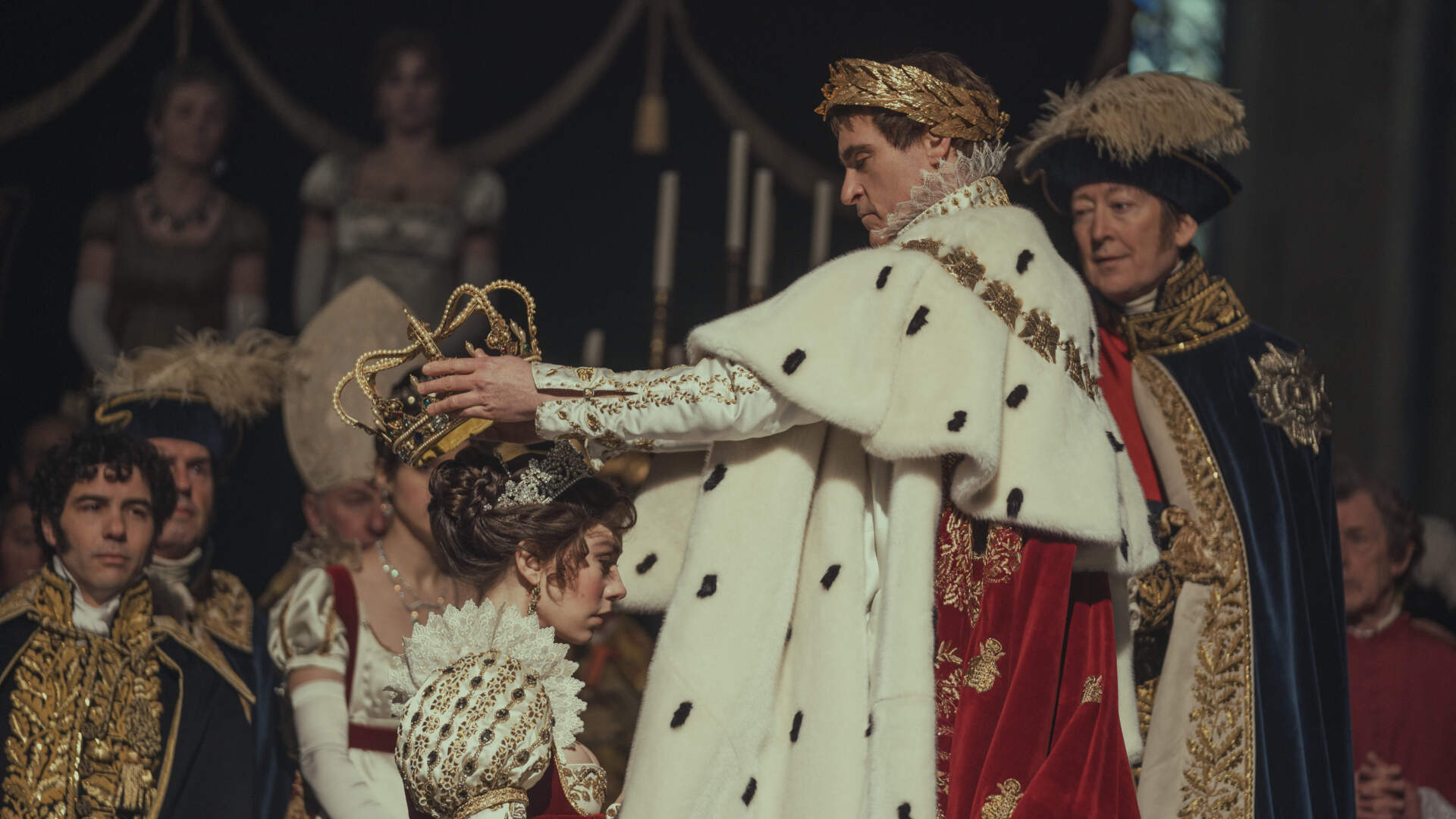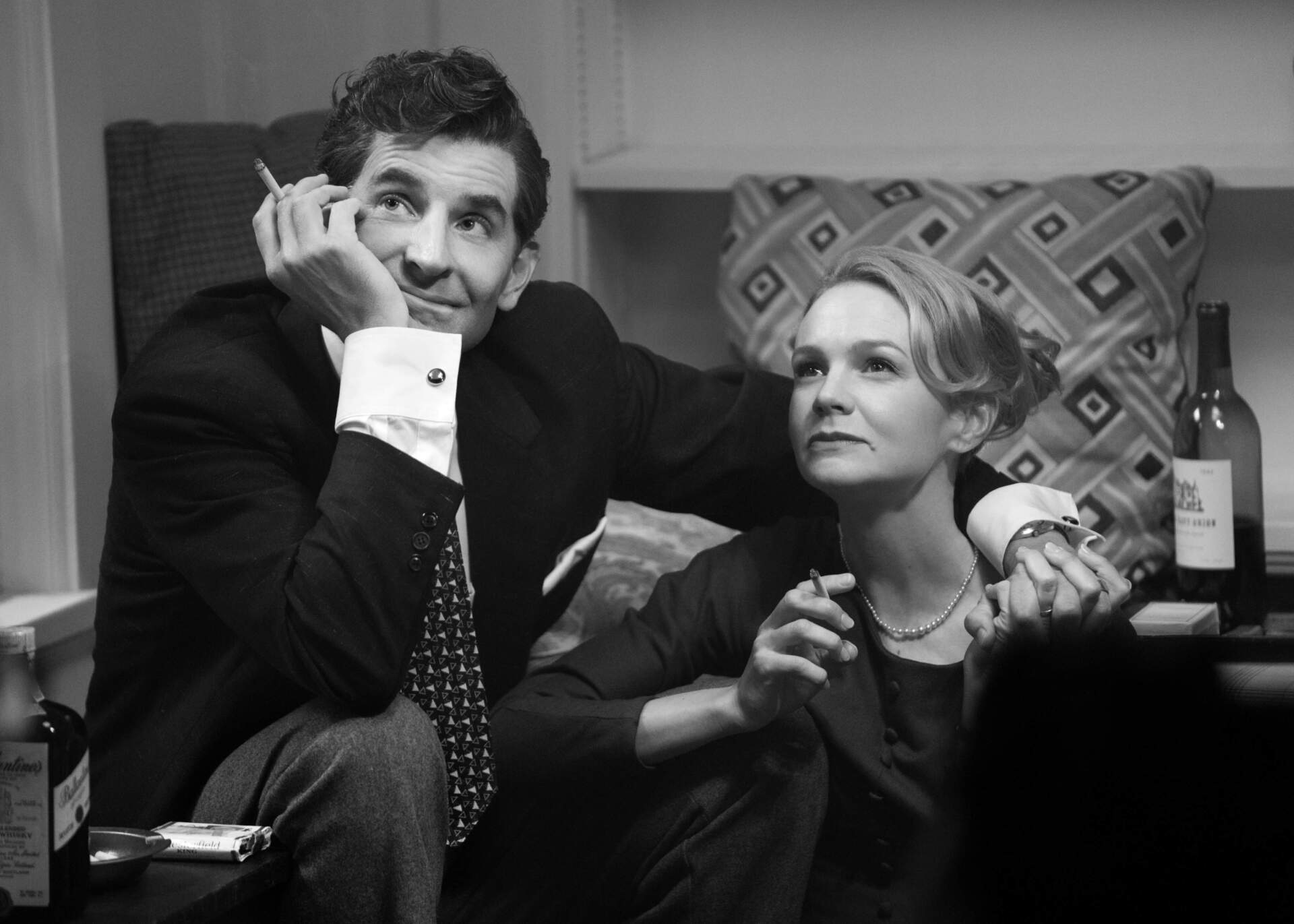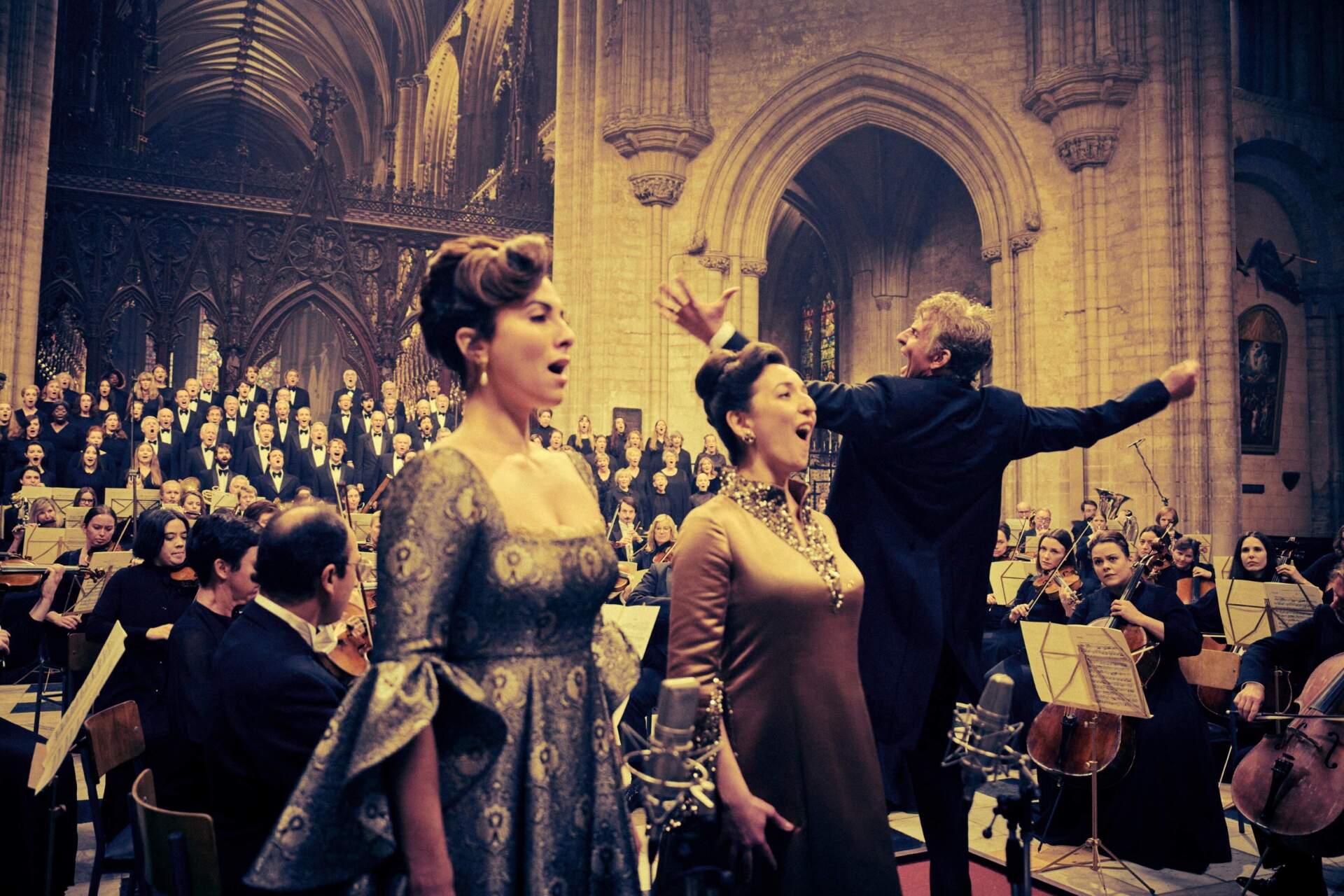Advertisement
Review
Biopics 'Napoleon' and 'Maestro' are both tales of troubled marriages

Awards season is upon us, and with it brings biographies of great men. As an audience member, you can be forgiven for finding the formula pretty stale. But 11 of the past 19 Best Actor Oscars have gone to biopics, which means, statistically speaking, the easiest way to win an Academy Award is by playing a famous dead guy. So I doubt we’ll be getting a break from these anytime soon.
At first glance, Ridley Scott’s “Napoleon” and Bradley Cooper’s “Maestro” make for a fascinatingly mismatched pair. The stories of a conqueror and a conductor would seem to have little in common, save for their directors having both made their previous pictures with Lady Gaga. Yet at heart, these are two tales of troubled marriages, both overlong and backbreakingly ambitious, featuring fearless lead performances. And neither film quite sticks the landing. They’ve also both been designed as boldly visual, big-screen experiences but were financed by streaming services, because apparently that’s the only way you can make expensive films for adults these days. (See also: Flower Moon, Killers of the.)
“Napoleon” cries out to be seen on the most massive screen you can find — it’s getting a limited run on 70 mm film at the Coolidge Corner Theatre and I’ll definitely be checking it out again there over the holidays. Director Scott turns 86 at the end of the month and he’s one of the last filmmakers we have left who can command an old-school battlefield epic with such brio. This is a grand spectacle full of vast landscapes, bloody skirmishes and grisly particulars. (I had never before considered what a cannonball could do to a horse, and now that’s something I can never unsee.) Yet at the center is a squirmy, thoroughly modern performance by Joaquin Phoenix that’s intriguingly — at times astoundingly — at odds with the prestige picture pageantry.

For a long time, Scott’s pictures felt too stuffy and fussed over for my tastes, as if they were embalmed in their ornate production design. But in the decade since his gonzo Cormac McCarthy collaboration “The Counselor” (notably dedicated to the filmmaker’s brash brother Tony, who died in 2012) an exciting irreverence has crept into his work. Whether we’re talking about the effrontery of Ben Affleck’s debauched, movie-stealing performance in “The Last Duel” or all the spicy meatball showboating in “House of Gucci,” Sir Ridley’s movies are way more fun than they used to be. “Napoleon” is occasionally uproarious, especially when it focuses on the first emperor of France as a crybaby cuckold — ferocious on the battlefield, defeated in the bedroom.
Phoenix’s pouty performance is going to be controversial, with lines like “Destiny brought me to this lamb chop” already breaking the internet. I think he’s an absolute hoot, and Vanessa Kirby’s magnetically imperious Joesphine is every bit as delightful, constantly undercutting him and calling her husband’s bluffs in a randy, dom-sub relationship that’s practically a dirty comedy act. The two performers are so simpatico in their jarringly contemporary affect it sometimes feels like we’re watching the first Gen X historical epic — “Kurt and Courtney’s Long Russian Winter.” But there’s a love there that’s undeniable, however dysfunctional, more compelling (and maybe more devastating) than Waterloo.
Scott has said in interviews that he’s got a four-hour edit of the film ready to stream on Apple TV+ sometime next year, and at 158 minutes, the theatrical release cut of “Napoleon” feels like highlights from a longer, more emotionally cohesive whole. Transitions range from abrupt to nonexistent, with characters appearing and vanishing, particularly during the mostly Josephine-less third hour, when Scott seems to be skimming through the stuff he’s not that interested in. But on a scene-to-scene basis, “Napoleon” remains spectacular, and often surprising in ways pictures like this usually aren’t.

“Maestro” has a similarly brazen beginning. In the eagerly anticipated follow-up to his excellent 2018 remake of “A Star is Born,” writer-director-star Bradley Cooper throws all caution to the wind, playing the legendary Leonard Bernstein in a performance so big it can be seen from space. There was some silly pre-release controversy about the large prosthetic nose Cooper is wearing for the role. But upon reflection, the giant schnozz turns out to be the most understated thing about the performance, which finds Cooper mincing, running around and bugging his eyes out with a wildly affected accent and hyper-physicality that lands somewhere between famous old footage of Leonard Bernstein and a Muppet. (My guess is that after delivering a performance of such subtle despair in “A Star is Born” and losing the Oscar to Rami Malek lip-syncing in silly prosthetic teeth, Cooper decided that if you can’t beat ‘em, join ‘em.) You can’t really say that what he’s trying here works, but I’d be lying if I said I wasn’t wildly entertained.
“Maestro” starts strong, shot in crisp, high-contrast black-and-white by the great cinematographer Matthew Libatique and chronicling young Lenny’s courtship of actress Felicia Montealegre (Carey Mulligan) while his career is on the rise. This section of the movie is so high-energy, characters sprint from one scene into the next and a dream ballet spontaneously breaks out during rehearsals of “On the Town,” with Felicia’s secret fears visualized as Lenny is literally carried away by a chorus of hunky young sailor boys. Their relationship requires a certain understanding on her part with regard to his after-hours activities, and as much as Felicia tries to be cosmopolitan about it, such an arrangement can’t be easy to maintain emotionally.

And that’s pretty much the gist of it, alas. “Maestro” loses a lot of luster when it shifts to color and tries to ground itself in a more recognizable reality. (The staging gets less theatrical, but Cooper and Mulligan keep playing to the back rows.) The screenplay shortchanges Bernstein’s musical contributions, limiting them mostly to lists of his accomplishments during interview scenes, which is curious considering what a fantastic job Cooper did with the performance sequences in “A Star is Born.” Aside from one big show-stopper, the movie is chiefly concerned with Lenny’s failures as a husband, flagrantly running around Tanglewood with his young boy toys while Felicia suffers nobly in silence.
I know I’m in the minority on this, but I find Carey Mulligan to be one of the biggest buzzkills in contemporary cinema, always scowling and bringing scenes down. The second hour of “Maestro” is a drag even before it becomes a cancer movie. (This is one of those biopics where the conflicts and storylines are all resolved with a half-hour to go, and then you just have to sit there waiting for everyone to die.) It’s a shame because Cooper remains such a promising director. He thinks in pictures, like a Thanksgiving breakup argument punctuated by a big Snoopy float making its way down Fifth Avenue outside an apartment window. There’s a beautifully staged death scene glimpsed from an upstairs window, with the characters all silently consoling each other outside. Too bad that all we feel then is relief that the movie will be over soon.
“Napoleon” is now playing in theaters everywhere and will be screening in 70 mm at the Coolidge Corner Theatre starting Wednesday, Nov. 22. “Maestro” opens at the Kendall Square Cinema on Friday, Dec. 1 and will be streaming on Netflix starting Wednesday, Dec. 20.
